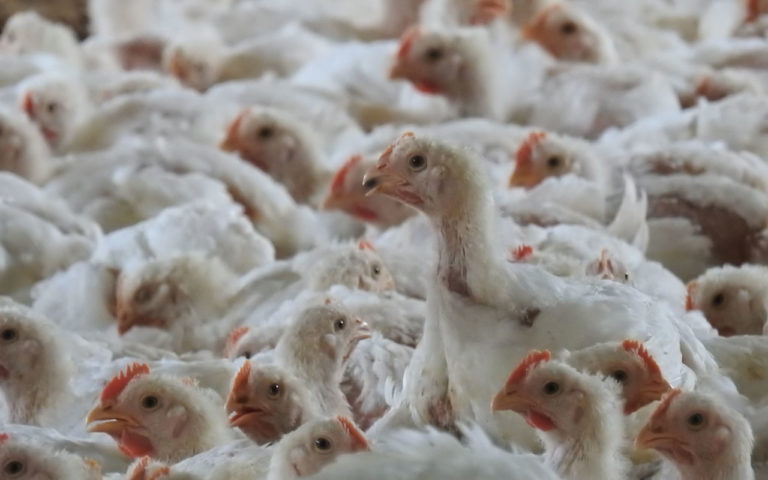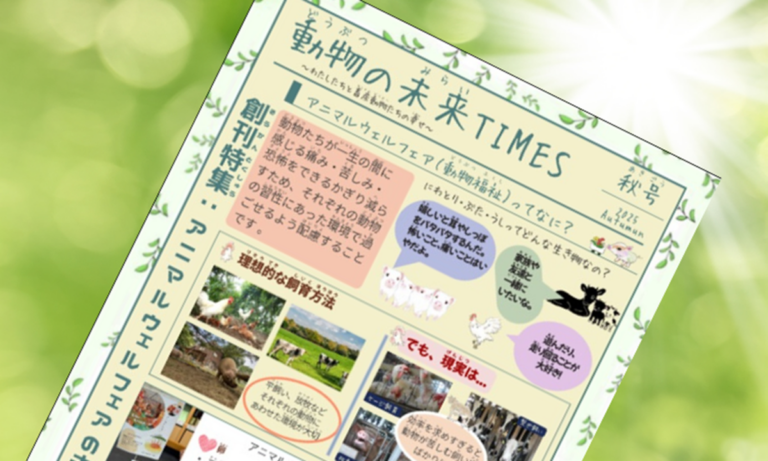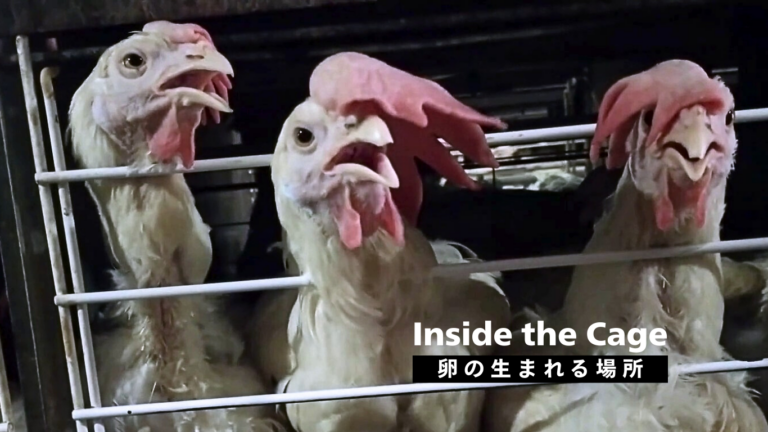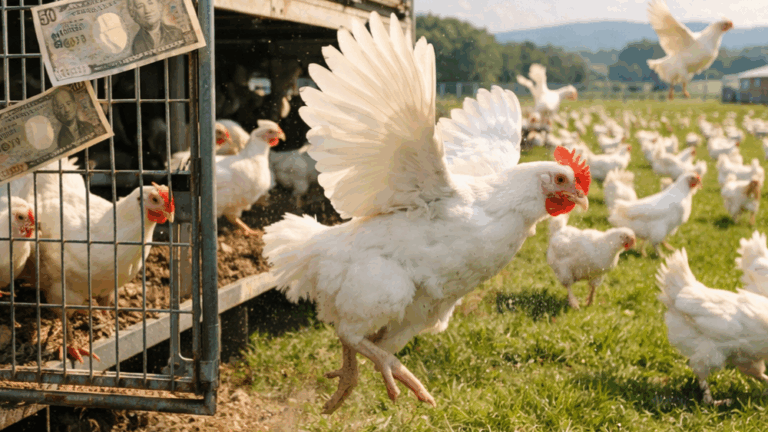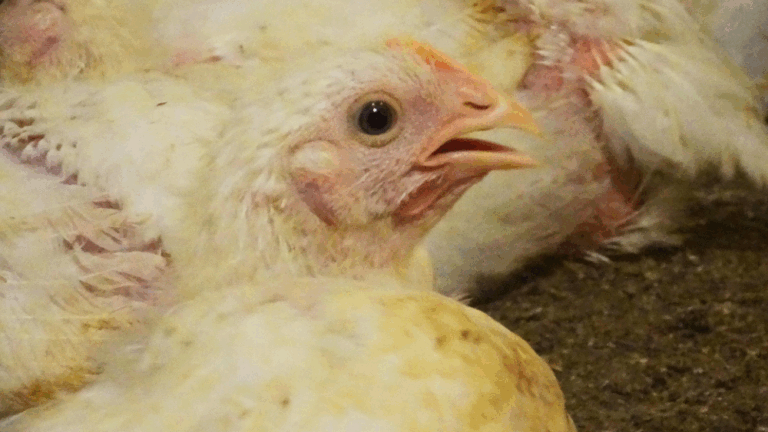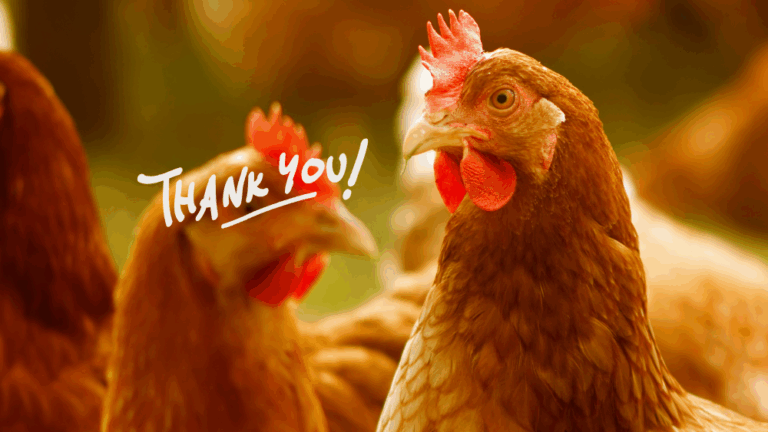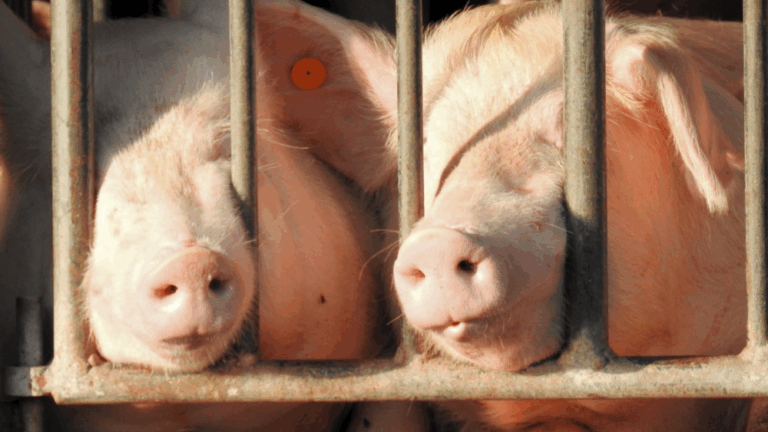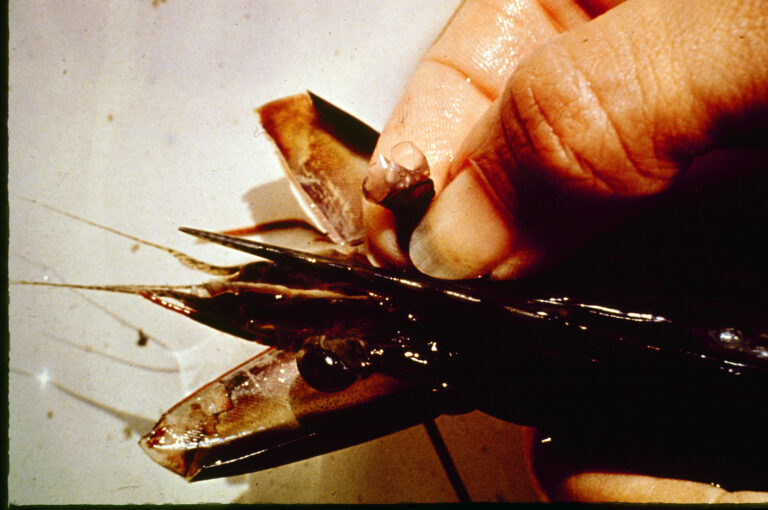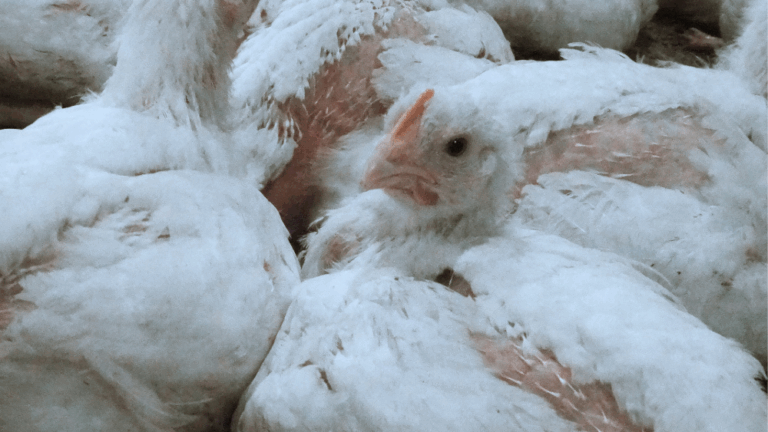No land animals are used as much as broiler chickens for meat.
In Japan, 700 million chickens are raised per year.
For this reason, improving situations for these animals would make a huge impact in terms of animal welfare. It is also important to take this issue seriously for our sustainable society since it is deeply connected to the issue of drug resistance.
Many European companies signed up for the European Chicken Commitment.
It was initiated by an animal welfare organization that set better standards for raising chickens.
In the Commitment, various proposals are suggested to solve issues for chicken in light of animal welfare.
Issue 1: TOO BIG. TOO FAST
In nature, it takes 120 days for chickens to become an adult.
Due to genetic modification, industrial chickens become adults in 40 to 50 days.
These chickens have a hard time walking, standing, and tend to develop ascites and sudden death syndrome due to metabolic disturbances.
High body weight causes their muscles to degenerate, which also reduces the quality of the meat.
Solution 1
We can choose breeds that have not been too genetically modified.
e.g. slow growth (less than 35 g a day) or medium growing breeds (less than 50 g a day)
It’s important to observe growth rate in light of health and animal welfare.
Specifically, breeds such as Hubbard JA757, 787, 957, or 987, Rambler Ranger, Ranger Classic, and Ranger Gold, are suggested by the European Chicken Commitment.
The equivalence of these species are Japanese indigenous breeds in Japan.
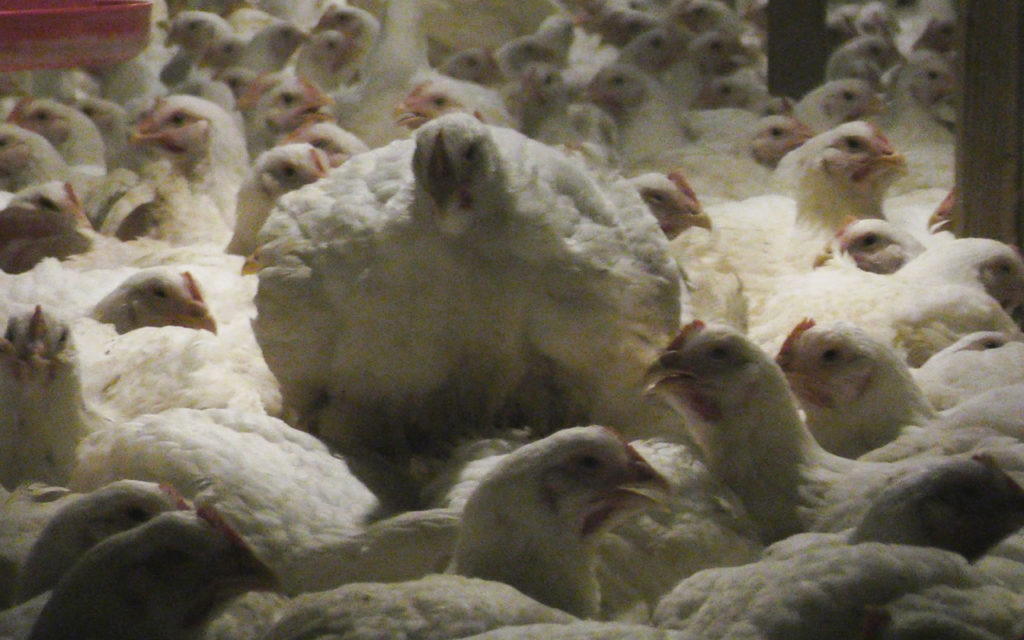
Issue 2: TOO MANY BIRDS. NOT ENOUGH ROOM
The situation for chickens for meat production is quite bad. Compared to the EU rules, Japanese chicken sheds are 1.7 times more crowded. They are 1.8 times more crammed compared to the average in Brazil.
High stoking density increases the chances of mortality, leg problems, dermatitis, disturbance of resting behavior, decrease of locomotion, and affects of lying and preening patterns. *1
Solution 2
Stocking density should be maintained below 30kg/m-2. It should also take chickens’ growth rate into account.
*1The Effect of Stocking Density on the Welfare and Behaviour of Broiler Chickens Reared Commercially
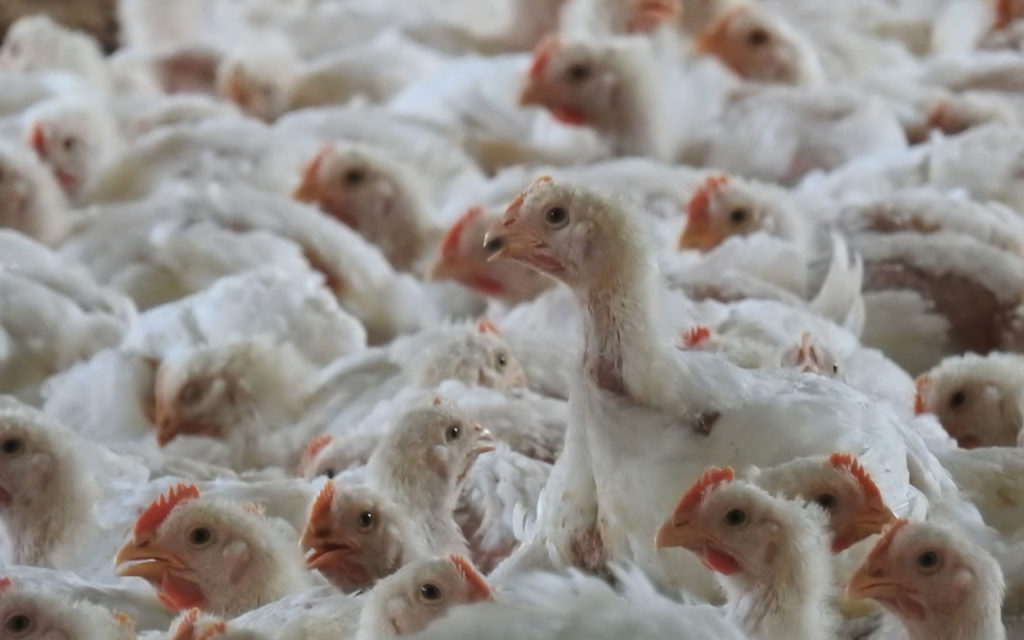
Issue 3: Unreasonable chicken sheds
In their natural environment, chickens peck, play, dig holes to hunt, sunbathe, and enjoy taking a dust bath.
However, many crammed chicken sheds do not provide sunlight, and do not allow chickens to exhibit natural behaviors as above.
Such intensive confinement also results in discomfort in temperature and humidity, inappropriate relative humidity for growth cycle, air pollution, floors filled with feces and ammonia, chickens’ low activity, footpad dermatitis, and respiratory problems.
Solution 3
Chicken sheds need to ventilate fresh air well, and provide clean and dry straw.
Additionally, natural sunlight, straw bales, perches, and pecking substances should be placed.
Moreover, it’s ideal to give chickens access to the outside to enjoy trees and grass.
It’s suggested to provide natural sunlight, 2-meter-long perches per 1,000 birds, and 2 kinds of pecking substances as a better way to raise chickens.
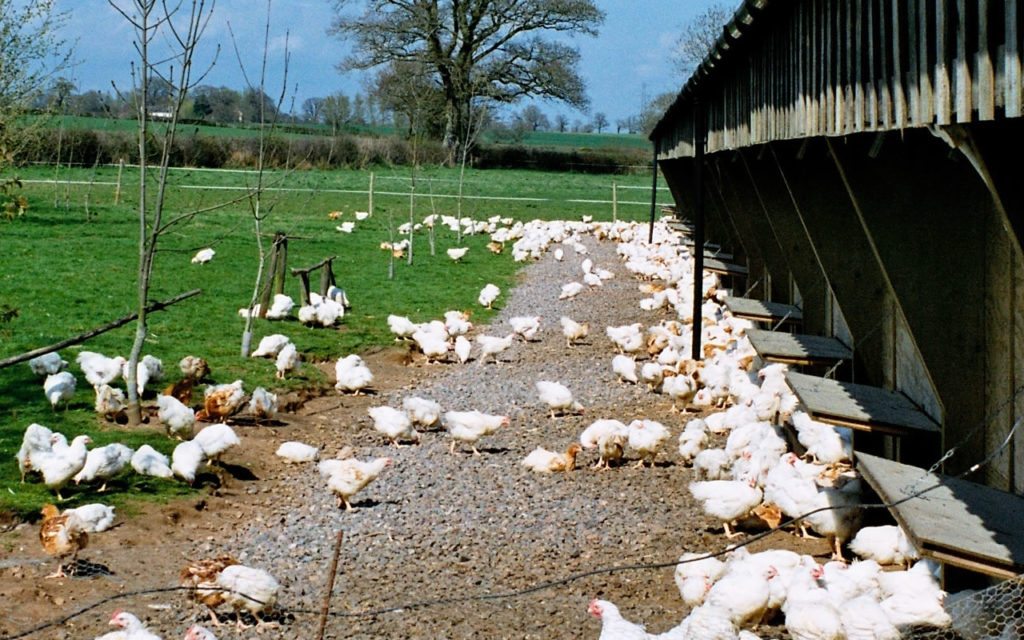
While many European and American companies are incorporating the idea of “Better Chicken” to improve the situation for chickens by the year of 2015 or 2016, Japanese companies show little interest in doing so.
They are stuck with the conventional methods as they still keep lights on during the night in chicken sheds.
Animal welfare is constantly making progress, which means agriculture is also evolving.
And yet, Japanese companies are unable to shake off the concepts that were developed during the period of rapid growth.
As a result, these abusive methods are still justified, and animals are continuing to suffer.
It’s people that have the power to change Japanese agriculture.
We’re consumers as well as individuals working for corporations.
Each one of us is responsible for learning about these issues and wishing to change.
In the meantime, what we can do is to not buy chickens from companies that do not show any will to improve the situations for their chickens.


